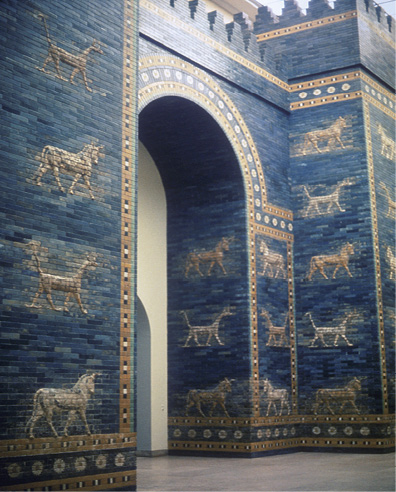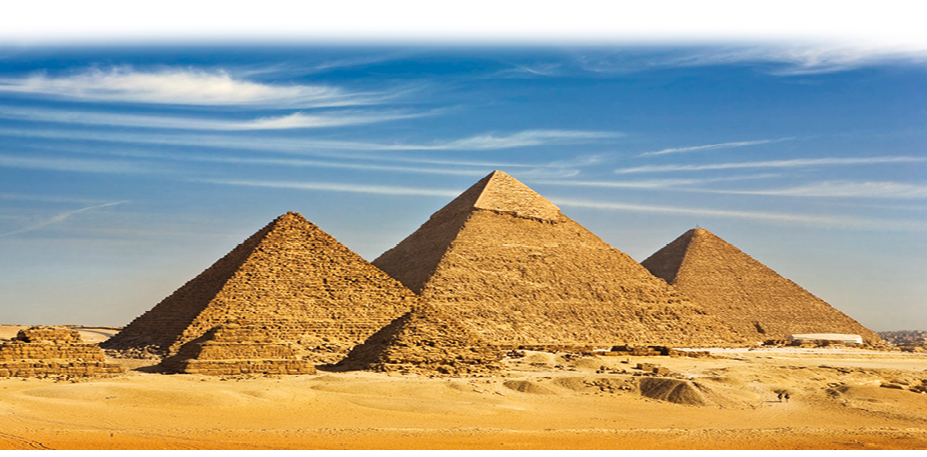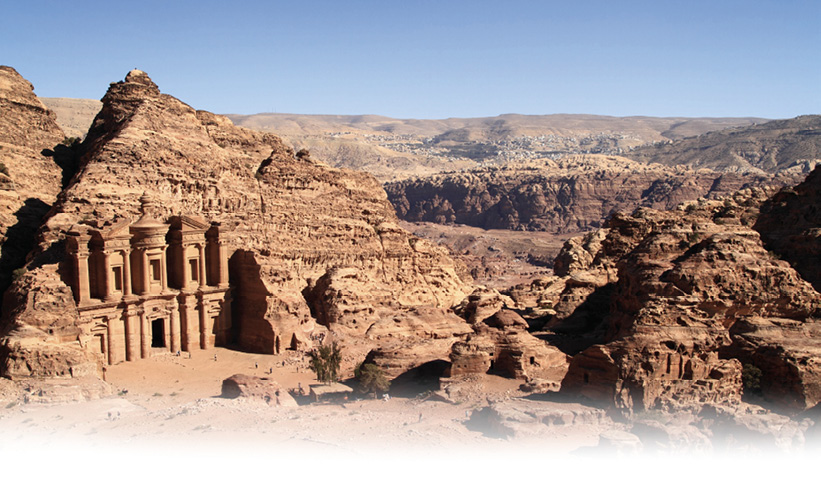

Albert Camus, French philosopher, narrates in The Myth of Sisyphus that, according to Greek mythology, Sisyphus had been condemned by the gods to an eternal life of attempting to carry an enormous boulder to the top of a mountain. Every time he was about to complete his mission, the boulder would roll down, and the wretched, condemned Sisyphus had to come back down, carry it, and start the route once again. Camus concludes that the absurd task of transporting the boulder to the summit—knowing that such a task would be never-ending—is a metaphor of humanity that does not know why it does what it does, or suffers what it suffers.
To Camus, humanity is born, lives, and finally dies tormented by one question: What is the purpose of life and suffering? Camus’ answer to this question is the theory of the absurd: everything is meaningless in life and in the universe. For Camus, only three alternatives were possible. The first is to commit suicide. But he rejected this possibility as it is an act of cowardice. The second option is to believe in a transcendental reality beyond the absurd. Camus also rejected this possibility, arguing that such would destroy reason and would result in philosophical suicide, as cowardly as physical suicide. Thus, only one path remained: accepting the absurd as the only practical solution, and living in the best manner possible, despite life’s meaninglessness.
According to Camus, humanity exists in a universe without meaning. Someone trying to find any purpose enters a futile conflict with the universe. The French philosopher’s conclusion is logical. For without God, whom Camus refused to accept, there is no human explanation for the mystery of pain, suffering, and death.1
Despite how incoherent the theory of the absurd may seem, Camus shaped, throughout the decades, various generations that, in one form or another, confront life with that view. In the minds of those who embrace this view there is no place for God. Humanity simply lives wondering about the Why of things, without finding an answer. But no one can be happy that way.
Is it true that we were born to suffer, and that the only two certainties in life are pain and death? To what extent is the theory of the absurd a reality? Obviously, if as Camus asserts everything is absurd in the universe, the theory of the absurd, by virtue of being a part of the whole, is also absurd. And reason, which is greatly extolled by philosophers for being part of an absurd world, has no meaning either, which would signify the suicide of the philosophy itself.
I prefer to believe that God created the universe and still controls it. But something strange took place at some point in history, modifying the original divine plan and establishing the apparently incomprehensible situation we now face.
Must we, therefore, necessarily face the question: does God exist? I would answer this question with another question: Does God not exist? Because if God does not exist humanity finds itself at a dead end. What awaits it at the end of its days? Death. Only that? And what is in store while it survives? Pain and suffering in an absurd world. Is that living? Theologian Paul Tillich refers to that uncertainty as “the threat of nonbeing.”2 What difference would there be, therefore, between human beings and animals? Facing a world without God, and facing death as the only end, humanity cannot do anything but confirm its impotence before a meaningless universe.
The absence of God leaves human questions unanswered. Many insist on denying a divine existence; they argue that reason cannot accept God. However, they do not realize that by juxtaposing reason against God they make it their own God. But in difficult times, when the world seems to crumble ravaged by life’s severities, the goddess of reason cannot stretch out her hand. The most she can do is scream in their ears: “Everything is absurd! Everything is absurd!”
BIBLICAL ARGUMENTS ABOUT THE EXISTENCE OF GOD
Believing in God is a characteristic element of human nature, since the latter has been constituted to have an intuition about a divine existence and presence.
On the surface, accepting the existence of God seems like an idea out of harmony with reason. But it has greater logic and understanding than it appears. Truly, God has not revealed himself on the level of our senses; we cannot see Him or touch Him. Nonetheless, He has not abandoned us in a desert without answers. He has not left us floating in a sea of doubt without demonstrations of His existence. It would be unfair on His part to ask for our trust without giving us a solid foundation on which to lay our faith. His existence, character, and the trustworthiness in his Word involve elements that are decipherable to human logic.
What evidences reveal the existence of God? He has left His mark everywhere. The things that surround us on earth, sea, and sky indicate order, beauty, precision, and ingenious planning. Through a logical analysis, none of the wondrous things in existence around us could exist by mere coincidence. There must be an intelligent mind behind it all.
Consider, for example, the wonders of creation: the beauty and fragrance of flowers, the snowflake crystals, the colorful design of butterflies, the intricate structure in the construction of a spider web, feathers and the varieties of birds, the instinct and marvelous mechanism of bees, the miracle of the annual migration of birds, the mysterious “radar system” of bats. Could those wonders of creation have emerged by themselves?
King David said: “The heavens declare the glory of God, the skies proclaim the work of his hands” (Ps. 19:1). Raise your eyes to the sky. Over there, where your eyes get lost in the infinite, the same evidence of order, beauty, precision, and purpose exists as on earth. Contemplate, for example, the beauty of a starry sky: the immensity in size, weight, speed, number, distance, and temperature of billions of planets and stars; the precise calculation and coordination of weight, movement, speed, temperature, and orbit of each; a perfect synchronicity that establishes time with regularity, everything kept in harmony by natural laws. Can anyone in their right mind, say all of that occurred accidentally?
If we take our eyes from the sky and direct them to our own bodies, we will also discover evidence of a Creator God. The human body shows the same amazing evidence of God’s hand as is observed on earth and in the skies. We need only mention the human brain, which simultaneously processes an astounding amount of information. Our brains register all the colors and objects captured by our eyes; it records the ambient temperature, the pressure of our feet on the ground, sounds picked up by our ears, and, additionally, coordinates our body’s functions such as breathing, eyelid movement, hunger, and the movement of muscles. Our brains process more than 1 million messages per second, enough to overload any machine. Fortunately, our brains have learned to select important messages and discard those it believes to be dispensable.

Can any one of those machines appear randomly? What do we make of the countless evidence of intelligent planning of the earth, the skies, and the human body? We cannot ignore them; they demand a rational explanation. Do they exist for a purpose, or are they here by chance? Are they a product of God, or chance? We cannot remain indifferent. Has anyone heard of a watch that created itself?
Astronomer Sir Frederick Hoyle, one of the brilliant and creative astronomers of the past century, illustrated the nonsense of believing that life is born out of chance through the following analogy: “What are the probabilities of a tornado touching down on a landfill and, by chance, coincidentally arranging such landfill, creating an airplane and leaving it ready for take off? The chances are so minimal to the extent of being ridiculous.”
The universe and the human body are much more complex and intricate than the mechanism of a watch or an airplane. Therefore, reason, logic, and common sense demand the existence of a Creator.
Throughout history, humanity has attempted to remove God from the picture. From Diagoras of Melos, the first philosopher to declare himself an atheist, to Michael Onfray, who published his Atheist Manifesto a few years ago, philosophers have written thousands of pages in an attempt to convince society that God does not exist. Still, humanity increasingly turns to God.
Perhaps Onfray is unaware, but his fierce rejection of the Creator is precisely a piece of evidence for God’s existence. Human conscience has a natural tendency to worship. God has been there, at the base of its nature, during all ages and at all places. Atheists and believers throughout history and around the world have sought an answer to their questions. According to the principle of finality, everything works for a purpose. That being so, a natural desire to seek comes from somewhere and with some finality. Human intelligence desires to discover the first cause of things, and that leads it to philosophize. Hence, humanity’s different convictions regarding the origin of everything is precisely proof of the existence of a Supreme Being, whose presence is incessantly sought by humanity.
The Bible, in turn, affirms with complete clarity God’s existence and creative power: “Lift up your eyes and look to the heavens: Who created all these? He who brings out the starry host one by one and calls forth each of them by name. Because of his great power and mighty strength not one of them is missing. Why do you complain, Jacob? Why do you say, Israel, ‘My way is hidden from the Lord; my cause is disregarded by my God?’ Do you not know? Have you not heard? The Lord is the everlasting God, the Creator of the ends of the earth. He will not grow tired or weary, and his understanding no one can fathom’” (Is. 40:26-28).

In this text, the prophet Isaiah not only acknowledges the existence and power of God, but also speaks of God’s eternal concern for His creatures. “Why do you complain, Jacob? Why do you say, Israel?” Or as Nietzche inquires: “How shall we, murderers of all murderers, console ourselves?” We do not have to be tormented by solitude. There is no need for us to feel like a grain of sand lost in the immensity of the beach. The Bible shows that we are the product of divine creation; we came into this world with a purpose, and God is at the helm of our lives, although at times beaten by circumstances, we do not notice Him.
The Holy Scriptures, a Peculiar Publishing Project
The Bible is the most important literary work of human history.
No other text can be compared to it.
| No editor or publisher was consulted | The text includes | Different literary forms were addressed |
• 50 independent authors • From 20 distinct professions • Who lived in 10 different countries • and wrote for a span of 1,600 years • in three different languages |
• 2,930 characters • 1,189 chapters • 31,173 verses • Hundreds of thousands of words • More than 3 million letters |
• Narrative • Epic • Dramatic • Didactic • Poetic |
The Bible contains 66 books and is divided in Old (39) and New Testament (27). Each book is structured in chapters and verses. For example:


Then the other question arises: What reasons do I have for believing that the Bible is the Word of God? There are many, but I will mention only some.
The first of these is the proclamation by the Bible itself: “All Scripture is God-breathed and is useful for teaching, rebuking, correcting and training in righteousness” (2 Tim. 3:16).
This vindication of divine authority is repeated time and again throughout the Bible. Expressions such as, “Thus says the Lord,” and “Listen to the words of the Lord,” are recorded more than 2,000 times in the Bible. Yet God does not ask us to believe without subjecting our reasons for faith to a test. Anyone could write a book and assert that the message was received from God. Eccentric people turn up everyday claiming divine authority. Could biblical writers have done the same? Of course. Therefore, the Bible’s own affirmation is not the sole reason for its credibility.
The other reason is the unity of the Bible. This book was written by 40 different authors during a period of almost 1,600 years in three distinct languages. Most of the writers never met each other in person. Moses never held a conversation with John. David never met Paul. Ezra was unaware of Matthew’s existence. However, to read the Bible from start to finish is to discover its unity of thought and content; the impression of 40 different authors being gathered one day to reconcile the text they would write about. Those men had different cultures, lived in distinct eras. How is it possible to have written a book with such well-constructed content without previously having met? This is further evidence that they were the human means of transmission inspired by the Holy Spirit, who is the true Author of the Bible.
Another reason to believe in the Bible is the fulfillment of its prophecies. The prophet Isaiah proclaims: “Remember the former things, those of long ago; I am God, and there is no other; I am God, and there is none like me. I make known the end fro the beginning, from ancient times, what is still to come. I say, ‘My purpose will stand, and I will do all that I please’” (Is. 46:9, 10). The Bible contains at least 1,000 prophecies, some completely fulfilled; others in the process of being carried out; and others yet to come to fruition. Approximately one-third of the Bible is comprised of prophecies, whose certainty can be confirmed today with astonishing exactness.
Consider, for example, the prophecy against Tyre, the flourishing seaport of ancient Phoenicia, that opulent and dazzling city, as ungodly as it was beautiful. One of its religious practices was to offer babies to the god of fire, Moloch, by placing a living child in the fiery hands of a statue. The prophet Ezekiel, in the name of God, announced six events that would befall on Tyre (Ezekiel 26:7-14):
1. It would be invaded by Nebuchadnezzar, king of Babylon.
2. Many people would die during the siege.
3. The city’s rubble would be thrown into the sea.
4. The city area would remain smooth, like a bare rock.
5. Fishermen would use that place to dry their nets.
6. Tyre would never be rebuilt.

PROPHECIES FROM THE OLD TESTAMENT REGARDING THE MESSIAH
The following prophecies were manifested only once
| Prophecy | Prophet/Author | Fulfillment |
| Would be born in Bethlehem | Micah (5:2) | Matthew 2:5, 6; Luke 2:4-6 |
| Would be born from a virgin | Isaiah (7:14) | Matthew 1:22, 23 |
| Would be called Immanuel | Isaiah (7:14) | Matthew 1:23 |
| His place of birth would mourn the death of many children | Jeremiah (31:15) | Matthew 2:17-18 |
| Would make a victorious entrance into Jerusalem riding a donkey | Zechariah (9:9) | Matthew 21:4-5 |
| Would use parables in preaching | Isaiah (6:9, 10) | Matthew 13:10-15 |
| Would heal many people | Isaiah (53:5) | Matthew 8:16, 17 |
| Would be rejected by His own people | Isaiah (53:3) | John 1:11 |
| Would be crucified alongside two thieves | Isaiah (53:12) | Matthew 27:38; Mark 15:27 |
| Would be given vinegar to drink | David (Ps. 69:21) | Matthew 27:34; John 19:28-30 |
| His clothes would be distributed by casting lots | David (Ps. 22:18) | Luke 23:34 |
| Would be assigned a grave with the godless, but would be buried with the rich | Isaiah (53:9) | Matthew 27:57-60 |
The prophecy was fulfilled in every particular. A short time after it was written, Nebuchadnezzar attacked the city; many people died, and those who survived remained trapped within the city walls. Babylon’s army lay siege to the city for 13 years, and eventually conquered it. Its survivors fled to an island located 800 meters from shore.
Two hundred fifty years later, Alexander the Great, is his exalted career as a conqueror, arrived at Tyre. Survivors of the Babylonian attack felt safe in the fortress of their island. But Alexander ordered his soldiers to cast the remains of the old city into the water and build a path to the island. The ancient metropolis resembled a bare rock, and Alexander marched his army and conquered the new Tyre. Today, fisherman can be seen spreading out their nets to dry them where the impressive Phoenician metropolis once stood. Three attempts to rebuild it have failed. The prophecy said: “I will make you a bare rock, and you will become a place to spread fishnets. You will never be rebuilt, for I the Lord have spoken, declares the Sovereign Lord” (verse 14).
The prophecy against Egypt is also eloquent. The country of the Pharaohs had a glorious past. It was a feared country and was developed in literature and other arts. But what is the current situation of that country? The Word of God records the following prophecy regarding Egypt: “I will bring them back from captivity and return them to Upper Egypt, the land of their ancestry. There they will be a lowly kingdom. It will be the lowliest of kingdoms and will never again exalt itself above the other nations. I will make it so weak that it will never again rule over the nations” (Ezek. 29:14, 15). Although Egypt has experienced notable growth in recent years, it continues to be a country with serious economic problems that struggles to get out of that situation.
BENEFITS OF READING THE BIBLE

Another city mentioned in prophecy is Petra (Edom). Thousands of tourists visit it every year. Arriving at Petra is finding oneself in the midst of an extraordinary sight. More than 1,000 buildings, like works of art, have been carved out of solid rock. Sites of human sacrifices are located in the mountains surrounding the valley. Every week, maidens were sacrificed to the sun god. It was a merciless practice. Young females were raped, and while still alive their hearts were ripped out of their bodies and offered to the rising sun. Sun worship was an abomination to God. Therefore, through Jeremiah, God prophesied against Edom: “Edom will become an object of horror; all who pass by will be appalled and will scoff because of all its wounds. As Sodom and Gomorrah were overthrown, along with their neighboring towns, says the Lord, so no one will live there; no people will dwell in it” (Jer. 49:17, 18).

The prophet Isaiah said more regarding Petra: “God will stretch out over Edom the measuring line of chaos and the plumb line of desolation. Her nobles will have nothing there to be called a kingdom, all her princes will vanish away. Thorns will overrun her citadels, nettles and brambles her strongholds. She will become a haunt for jackals, a home for owls” (Is. 34:11-13).
And what can be said of Babylon? It was one of the most magnificent cities in the ancient world, and is mentioned many times as one of the first metropolises in history. But Jeremiah prophesied: “See, I will defend your cause and avenge you; I will dry up her sea and make her springs dry. Babylon will be a heap of ruins, a haunt of jackals, an object of horror and scorn, a place where no one lives” (Jer. 51:36, 37).

Today it is easy to confirm that ancient Babylon (north of Baghdad, Iraq) is desolate. Yet the prophecy is even more striking: “She will never be inhabited or lived in through all generations; there no nomads will pitch their tents, there no shepherds will rest their flocks. But desert creatures will lie there, jackals will fill her houses; there the owls will dwell, and there the wild goats will leap about” (Is. 13:20, 21).
At present, Arabs still inhabit the region. The powerful palaces and the flowing gardens of Babylon are but a mere memory. However, the locals still live in tents. How could Isaiah have known that locals would continue living near the ruins of Babylon for 2,500 years, yet refuse to use it as shelter? Archeologists say it is impossible to eradicate such an idea from that people.1
And what about science? Does science weigh in regarding the inspiration of the Bible? Herbert Spencer, English philosopher, was the principal advocate of evolution in human sciences. He discussed evolutionary concepts in nature before Charles Darwin developed his famous theory regarding the origin of species. Spencer is the author of the famous expression “survival of the fittest,” misleadingly attributed to Darwin. Spencer also identified five scientific principles: time, force, energy, space, and matter. What Spencer never imagined was that he was simply confirming what the Bible says: “In the beginning (time) God (force) created (energy) the heavens (space) and the earth (matter)” (Gen. 1:1).
Throughout time, science and its discoveries have proven that the Bible is right in its declarations. Let us analyze, for example, this text from Isaiah: “He sits enthroned above the circle of the earth” (Is. 40:22). The Hebrew word Isaiah used for “circle” is khug, which means “round sphere.” The American standard version of the Bible states: “It is he that sitteth above the circle of the earth.” Greek science, contemporary to Isaiah, taught that the Earth was flat, square, or rectangular. How did Isaiah know that the Earth was round rather than flat, as popular opinion asserted? Without doubt, the prophet wrote with something more than human understanding.
There is another scientific detail in relation to light. God asked Job: “What is the way to the abode of light? And where does darkness reside? (Job 38:19).
Note the mention about the way to light. The Hebrew word for way is Derek, which means “path or road.” How is this connected to science? Until the seventeenth century, it was believed that light was transmitted instantaneously, that is, it would be turned on at one end and seen instantly at another. But then Isaac Newton discovered that light is made up of tiny particles traveling in a straight line. Later, Christiaan Huygens proposed the wave theory of light, and Ole Romer measured the speed of light. Scientists today know that light is radiating energy traveling in electromagnetic wavelengths in a straight line at a speed of 300,000 kilometers per second. How could the author of the book of Job have been able to speak about the “way” of light when such information had yet to be discovered?
The book of the Psalms contains another interesting scientific truth. Speaking about the sun, the psalmist wrote: “It rises at one end of the heavens and makes its circuit to the other; nothing is deprived of its warmth” (Ps. 19:6). For many years, scientists lectured about geocentrism, i.e., that the sun revolves around earth. But it was later discovered that the sun is not stationary in one place, as was once believed. Rather, it actually moves through space. It’s traveling speed is estimated at 965,580 kilometers per hour, in such a large orbit that it takes 200 million years to complete one rotation.2 How did the psalmist know that the sun has one “circuit” or orbit?
We will now shift to another subject related to science. Estimating the number of stars appears to have been a fascination of humanity at different times in history.
The first astronomer to attempt counting the stars was Hipparchus, who counted 1,026 stars in 150 B.C.3 Three hundred years later, another Greek astronomer, Ptolemy, counted 1,056. Much later in 1600, German astronomer Johannes Kepler, asserted that he had counted 1,005 stars. Today we know that all those estimates fall short. It is estimated that there are at least 300 billion stars.4
Notwithstanding, read what Moses wrote almost 6,000 years ago: “He took [Abram] outside and said: ‘Look up at the sky and count the stars—if indeed you can count them.’ Then he said to him, ‘So shall your offspring be’” (Gen. 15:5).
Jeremiah confirmed the same: “I will make the descendants of David my servant and the Levites who minister before me as countless as the stars in the sky and as measureless as the sand on the seashore” (Jer. 33:22)
Today, astronomers unanimously agree that it is practically impossible to calculate the number of stars. How did Moses and Jeremiah know that well before telescopes and satellites were invented?
However, although all these can be proof of the authenticity of the Bible, for me the proof that withstands any argument is the Bible’s transformative power. The apostle Paul declares: “For I am not ashamed of the gospel, because it is the power of God that brings salvation to everyone who believes: first to the Jew, then to the Gentile” (Rom. 1:16).

Over the years I have observed the transformative power of the Bible. You can read a good book, and the most you will obtain is to increase your knowledge. That is the case of people who swallow up books of emotional intelligence, total quality, and leadership. They can become experts in their fields. But when they enter the real world, they are unable to overcome complex and emotional wounds that linger; neither can they control their human passions, letting themselves be conquered by pride, arrogance, and self-satisfaction.
However, when reading the Bible we realize that not only do we receive information, but something occurs within, something not typical of human nature. Criminals go on to lead honest lives, unsuccessful people pick themselves up, slaves to certain vices react and defeat harmful habits that were destroying their lives. I have seen repentant spouses restore their marriages; I have observed young adults ruined by drugs declare their freedom from them; I have witnessed scenarios where men and women ruled by hate and resentment asked for forgiveness. Such attitudes had no logical explanation from a human point of view.
But that is the nature of God: His love is eternal. He is concerned about His children, and He runs to help those who implore Him for help.
1. A. Camus, The Myth of Sisyphus and Other Essays, London: Penguin, 2013.
2. P. Tillich, Le courage d’être, trad. J.-P. Le May, Le Cerf-Labor et Fidès-Presses de l’université de Laval, 1999, p. 184.
3. M. Onfray, Atheist Manifesto: The Case Against Christianity, Judaism, and Islam, New York: Arcade Publishing, 2011.
4. I. Asimov, The Universe, New York: Avon Books, 1977, p. 20.
5. https://bit.ly/P2rsMF. Accessed July 28, 2015.
